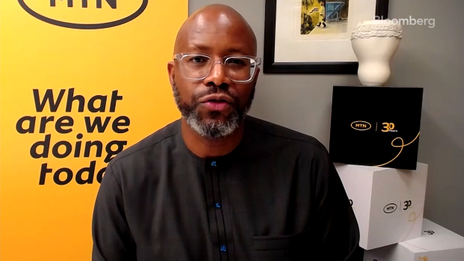Iraq Data Centers: 5 Game-Changing Benefits of Launching Commercial Hubs
Iraq is stepping into a new era of digital transformation with the launch of its first government data centers for commercial use. This landmark deal marks a historic milestone, positioning the country as a key player in the Middle East’s tech infrastructure landscape. The new centers promise to revolutionize data management, attract investment, and boost Iraq’s technological and economic growth.
1. Enhanced Data Security
The establishment of Iraq Data Centers will significantly enhance data security for government and commercial entities. By centralizing and modernizing data storage, sensitive information will be better protected against cyber threats. These centers are designed to meet international standards, ensuring compliance with global security protocols and fostering trust among investors and businesses.
2. Boost to Digital Economy
Iraq Data Centers are set to catalyze the growth of the digital economy. With reliable infrastructure in place, tech startups, e-commerce platforms, and IT services can operate more efficiently and scale faster. This will create new business opportunities, stimulate innovation, and drive revenue across multiple sectors.
3. Job Creation and Skill Development
The launch of government commercial data centers will generate numerous employment opportunities. Skilled professionals will be required in IT management, cybersecurity, data analytics, and network administration. This initiative also promotes workforce development programs, helping Iraq build a pool of talent capable of supporting advanced technology services.
4. Improved Government Services
Iraq Data Centers will streamline government operations by providing centralized data management and advanced analytics. Citizens can expect faster, more efficient public services, from healthcare to transportation. Reliable data infrastructure ensures better decision-making and transparency in government processes. For more insights on government digital transformation, visit World Bank Digital Development.
5. Attraction of Foreign Investment
The launch of Iraq Data Centers positions the country as an attractive destination for foreign investors. Secure, state-of-the-art data infrastructure reduces operational risks for international businesses looking to enter Iraq’s market. This initiative signals a commitment to technological advancement and economic modernization, which can stimulate cross-border partnerships and investments.
6. Support for Emerging Tech Sectors
By providing robust IT infrastructure, Iraq Data Centers will support emerging technology sectors such as cloud computing, artificial intelligence, and fintech. Companies in these fields can leverage high-performance data resources to innovate and compete globally. This foundation encourages startups and SMEs to explore new products and services, contributing to Iraq’s diversified economy.
7. Enhanced Cloud and Hosting Services
Iraq Data Centers will provide reliable cloud and hosting services for businesses and government agencies. This infrastructure ensures data availability, redundancy, and high-speed access. Companies can now host applications, websites, and critical services locally, reducing dependence on foreign servers. Learn more about Iraq’s tech infrastructure on our related article Iraq Cloud Infrastructure.
8. Energy Efficiency and Sustainability
Modern data centers are designed with energy efficiency and sustainability in mind. Iraq Data Centers will implement advanced cooling systems, renewable energy integration, and green practices to minimize environmental impact. Sustainable operations not only reduce costs but also support Iraq’s long-term ecological and economic goals.
9. Strengthening National Cybersecurity
The government commercial data centers will play a crucial role in strengthening Iraq’s cybersecurity framework. Centralized and secure data storage allows for faster threat detection, incident response, and protection of critical national infrastructure. These centers are essential for safeguarding sensitive governmental and commercial data against increasing cyber threats.
10. Long-Term Digital Strategy and Policy Support
Iraq Data Centers are a cornerstone of the country’s long-term digital strategy. Government agencies and private stakeholders must collaborate to develop policies that maximize the benefits of these commercial hubs. Coordinated efforts will ensure scalability, innovation, and regulatory compliance, creating a resilient and future-ready digital ecosystem.
Conclusion
The launch of Iraq Data Centers marks a historic milestone, transforming the country’s technological and commercial landscape. From enhanced data security and government efficiency to foreign investment attraction and support for emerging tech sectors, these hubs offer immense potential. By investing in infrastructure, workforce development, and policy coordination, Iraq can harness these centers to drive sustainable economic growth and a thriving digital economy.




